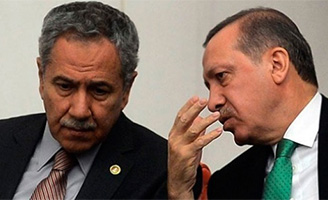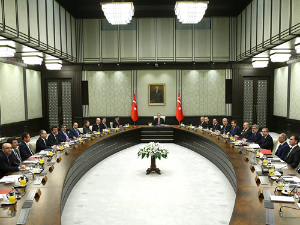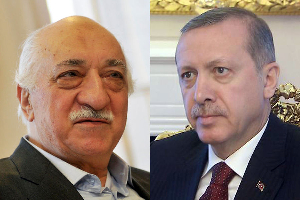Battles and Wars: Bracing for Erdoğan’s Long Goodbye
By Gareth Jenkins (vol. 8, no. 6 of the Turkey Analyst)
On March 20, 2015, Turkish President Recep Tayyip Erdoğan publicly criticized the announcement by the ruling Justice and Development Party (AKP) that it was planning to establish a monitoring committee to oversee discussions about reforms on the Kurdish issue. On March 21, 2015, Government Spokesperson Bülent Arınç bluntly told Erdoğan not to interfere in the running of the government. Arınç repeated his admonition the following day. It was the first time that a leading member of the AKP had issued such an outspoken public challenge to Erdoğan’s authority.

The Return of Hakan Fidan to MİT is the Sign of a Power Struggle
By M. K. Kaya (vol. 8, no. 5 of the Turkey Analyst)
The row over Hakan Fidan, Turkey’s reinstated intelligence chief, is suggestive of shifting power realities and rivalries within the AKP regime. Prime Minister Ahmet Davutoğlu suffered a serious setback when he was forced to let Hakan Fidan return to MIT. President Recep Tayyip Erdoğan needed not only to have his confidante back at the helm of the critically important MIT, but also to ensure that the circle around Davutoğlu did not succeed in its bid to become a power centre on its own right. Erdoğan correctly saw the emerging Davutoğlu-Fidan alliance as an alliance that had the potential to reconfigure the power status quo within the AKP.

What are Erdoğan’s Real Intentions in the Kurdish “Solution Process?”
By Burak Bilgehan Özpek (vol. 8, no. 5 of the Turkey Analyst)
President Recep Tayyip Erdoğan’s bid to concentrate all power to himself has increased the skepticism and reluctance among the representatives of the Kurdish political movement and among liberals. The suspicion is widespread in Turkey that the “solution process” of the Kurdish problem is going to pave the way for a fully authoritarian government. What many fear is that Erdoğan is using the solution process and the promise of Kurdish peace as instruments in his bid to consolidate his position as the unchecked leader of the country.

The Long Road that Led to the AKP’s “New Turkey”
By Fatih Yaslı (vol. 28, no. 1 of the Turkey Analyst)
The regime that the AKP is constructing certainly deserves to be defined as “new.” However, a proper understanding of the rise of the Islamists requires that their ascent is put in the right historical context, and that the true nature of the old Turkish regime is appreciated. Turkey’s Islamization has a long prehistory. It has been a long time since the radicalism of Kemalism was discarded. Instead, religion and conservatism have been consistently promoted in the name of anti-socialism.

Narrative Veils: Erdogan, the AKP and the Gulenist Arrests
By Gareth Jenkins (vol. 7, no. 23 of the Turkey Analyst)
On December 14, 2014, the Turkish police staged early morning raids in 13 provinces across the country following the issuing of arrest warrants for 31 alleged members of the Gülen Movement on terrorism charges. Those detained included six journalists, prompting claims in the national and international media that the arrests were another example of President Recep Tayyip Erdoğan’s increasing suppression of freedom of expression. In fact, the narratives of the AKP and the Gülen Movement about the arrests are both attempts to coat a power struggle with the gloss of a commitment to principle.








